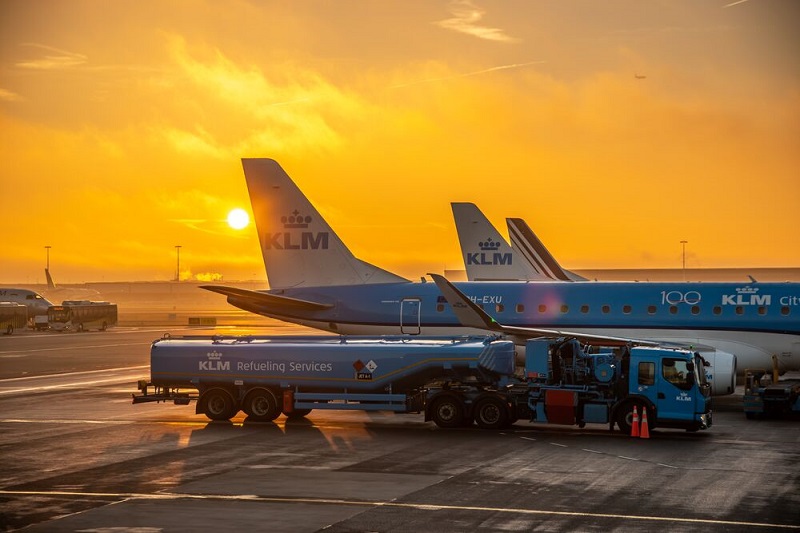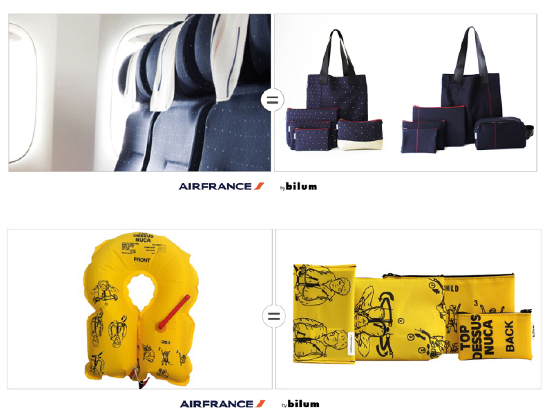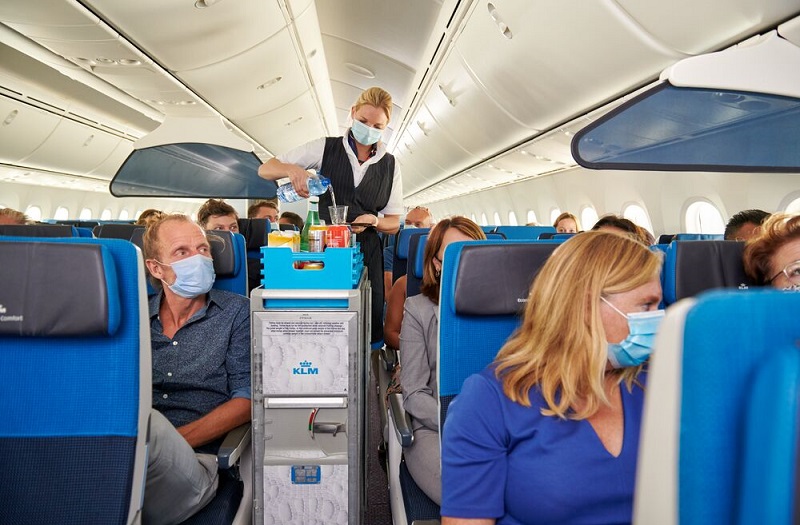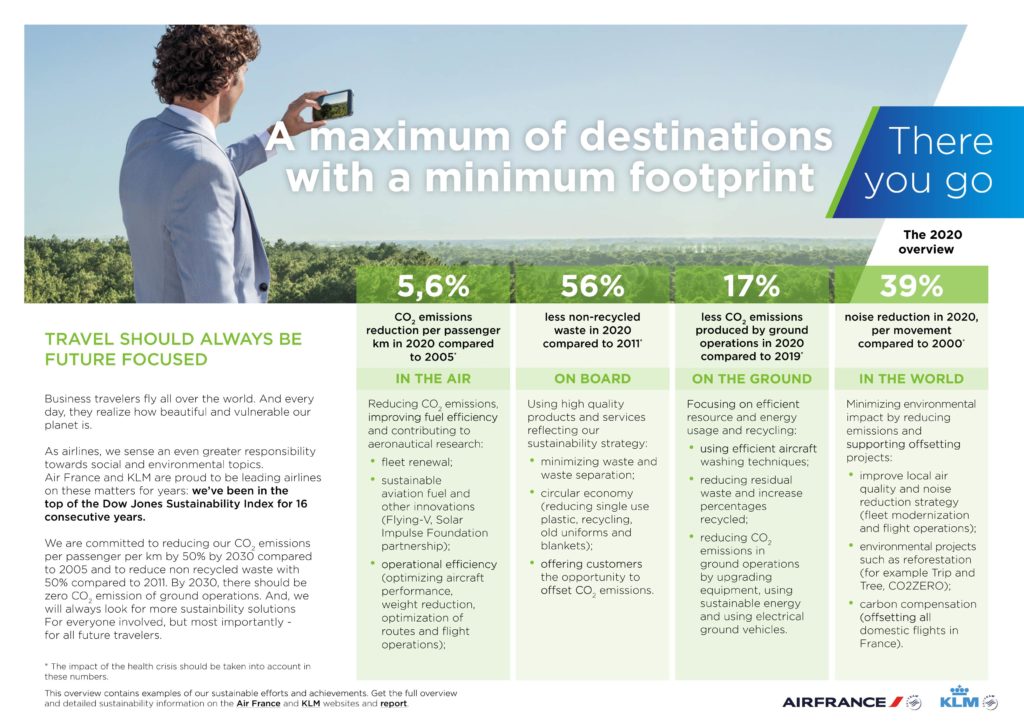
Air France – KLM handles many forms of waste, mostly arising from flight operations and maintenance, within a context of strict regulatory requirements. Across the entire supply chain, the Group strives to minimize waste and increase the proportion that is recycled or reprocessed.

To achieve our targets, 50% reduction in residual waste (non-recycled waste from the cabin and ground activities) by 2030 compared to 2011, Air France-KLM applies the principles of the circular economy to the different waste sources. About 70% of waste results from onboard catering and the cleaning of the cabin. The remainder results from our production at our, for example, Cargo and Engineering activities, and only a small percentage comes from the offices.
Air France and KLM base their actions to achieve the targets for each waste stream on the four principles: rethink, reduce, reuse and recycle. In addition, we actively engage with authorities and our supply chain to seek solutions and remove any barriers to handle catering waste as well as the aeronautical waste, which are both subject to strict international regulation.
Reducing waste also provides a financial opportunity: several initiatives have demonstrated considerable economic benefits.

The Group reuses and recycles the fabric of, for example, used uniforms, work clothing and blankets. Through collection of these items and collaboration with third parties, the fabric is redistributed, or reused or recycled into branded items such as bags or pouches that are avialable to our customers.
At the airports where we operate, the majority of gaseous emissions and particulates are emitted by aircraft movements (taxiing, takeoff and landing). The remainder is produced by ground activities, maintenance operations, logistics and road access to the airport for passengers, employees and suppliers.
We aim to reduce our local emissions to lower our local impact. To reach this goal, we focus on the following measures:
We monitor our atmospheric emissions for both flight and ground operations, including low altitude emissions which impact the quality of the air around airports. The reported indicators cover emissions of CO2and NOx
Air quality is measured at Amsterdam Schiphol, Paris Airports and in other airport areas.
